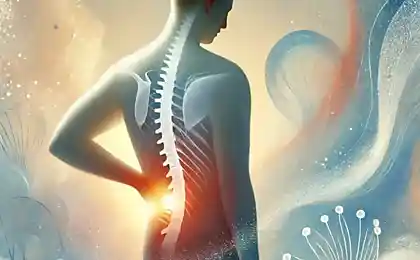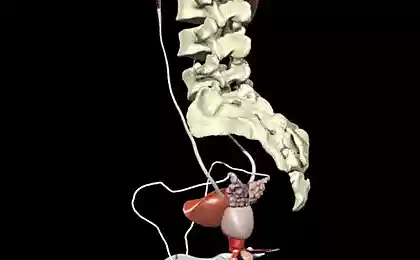175
Psychosomatic nature of bulimia and anorexia
Psychological causes of food disordersAnorexia and bulimia are psychosomatic disorders associated with eating disorders.
Anorexia is a syndrome in which a person completely loses his appetite, which leads to severe, sometimes irreversible consequences.
With bulimia, on the contrary, a person has attacks of increased appetite, he can not stop and stop eating.
Common to patients with both anorexia and bulimia is that they have a distorted view of their own body. Anorexic sufferers always see themselves too full, they always think that they are not slim enough, not beautiful enough.

A large number of women suffering from both anorexia and bulimia do not recognize the obvious – they flatly refuse to admit that they have psychological problems. Their level of denial is very strong. Patients with bulimia for years continue to insist that bouts of quenching severe hunger are natural, and subsequent inducing vomiting is not associated with the disease, but is the right way to lose weight. Controlling your body weight becomes an important and sometimes your only goal.
At the heart of these diseases are serious psychological problems that have chosen such forms of realization. Here are the most characteristic psychogenic factors that can cause anorexia or bulimia.
bulimia
Broken family relationships. The development of binge eating in children and adolescents can be caused by conflict between mother and child. Children often begin to eat excessive amounts of food if they consider themselves neglected, careless, deprived compared to other siblings.
Psychological isolation. For example, a pathological change in appetite can develop when the child is placed in a boarding school. For such a child, food is a source of positive emotions and a kind of acquisition, as well as a mechanism for protecting against depression, a cure for fear.
In an adult, bulimia can develop due to a feeling of dissatisfaction with his own life, against the background of a constant feeling of failure, stoppage in development, as well as due to a decrease in interest in life, when food becomes the only incentive to physical activity.
anorexia
With anorexia, as with bulimia, a negative attitude towards oneself leads to malnutrition, only here the opposite happens - a person refuses to eat. Anorexia affects girls and women in most cases. As a rule, the refusal of food is motivated by the desire to become slim, graceful and beautiful.

But most often behind the desire to become slim is the desire to be loved, in demand in personal relationships with parents, boys, men. The reasons that cause such desires are often in deep psychological problems. A feeling of “dislike” in childhood, growing up and the associated rupture of close relations with the mother, perceived as betrayal, a feeling of inferiority due to failures in the social environment. All this can cause you to take food under tight control to change yourself externally.
The success of treatment of both bulimia and anorexia can be achieved only by eliminating the causes of these diseases - by solving the psychological problems of patients. In order for patients to avoid relapses, they need to change their attitude towards themselves and the world around them so that they stop punishing themselves with starvation (as often happens with anorexia) or encourage excessive consumption of high-calorie and sweet foods (as bulimic patients do). To do this, when detecting symptoms of these diseases, it is recommended to use the services of qualified psychologists. published
Author: Ustinova Julia
P.S. And remember, just changing our consciousness – together we change the world!
Source: //www.ustinova.info/psihosomatika-priroda-anoreksii-i-bulimii/
Anorexia is a syndrome in which a person completely loses his appetite, which leads to severe, sometimes irreversible consequences.
With bulimia, on the contrary, a person has attacks of increased appetite, he can not stop and stop eating.
Common to patients with both anorexia and bulimia is that they have a distorted view of their own body. Anorexic sufferers always see themselves too full, they always think that they are not slim enough, not beautiful enough.

A large number of women suffering from both anorexia and bulimia do not recognize the obvious – they flatly refuse to admit that they have psychological problems. Their level of denial is very strong. Patients with bulimia for years continue to insist that bouts of quenching severe hunger are natural, and subsequent inducing vomiting is not associated with the disease, but is the right way to lose weight. Controlling your body weight becomes an important and sometimes your only goal.
At the heart of these diseases are serious psychological problems that have chosen such forms of realization. Here are the most characteristic psychogenic factors that can cause anorexia or bulimia.
bulimia
Broken family relationships. The development of binge eating in children and adolescents can be caused by conflict between mother and child. Children often begin to eat excessive amounts of food if they consider themselves neglected, careless, deprived compared to other siblings.
Psychological isolation. For example, a pathological change in appetite can develop when the child is placed in a boarding school. For such a child, food is a source of positive emotions and a kind of acquisition, as well as a mechanism for protecting against depression, a cure for fear.
In an adult, bulimia can develop due to a feeling of dissatisfaction with his own life, against the background of a constant feeling of failure, stoppage in development, as well as due to a decrease in interest in life, when food becomes the only incentive to physical activity.
anorexia
With anorexia, as with bulimia, a negative attitude towards oneself leads to malnutrition, only here the opposite happens - a person refuses to eat. Anorexia affects girls and women in most cases. As a rule, the refusal of food is motivated by the desire to become slim, graceful and beautiful.

But most often behind the desire to become slim is the desire to be loved, in demand in personal relationships with parents, boys, men. The reasons that cause such desires are often in deep psychological problems. A feeling of “dislike” in childhood, growing up and the associated rupture of close relations with the mother, perceived as betrayal, a feeling of inferiority due to failures in the social environment. All this can cause you to take food under tight control to change yourself externally.
The success of treatment of both bulimia and anorexia can be achieved only by eliminating the causes of these diseases - by solving the psychological problems of patients. In order for patients to avoid relapses, they need to change their attitude towards themselves and the world around them so that they stop punishing themselves with starvation (as often happens with anorexia) or encourage excessive consumption of high-calorie and sweet foods (as bulimic patients do). To do this, when detecting symptoms of these diseases, it is recommended to use the services of qualified psychologists. published
Author: Ustinova Julia
P.S. And remember, just changing our consciousness – together we change the world!
Source: //www.ustinova.info/psihosomatika-priroda-anoreksii-i-bulimii/























